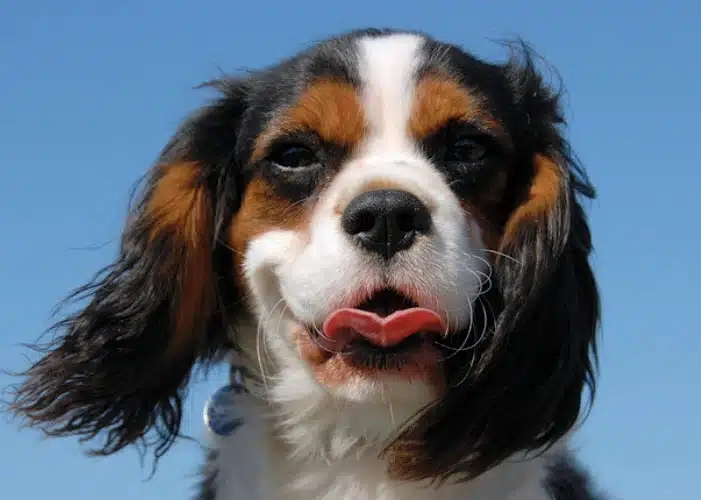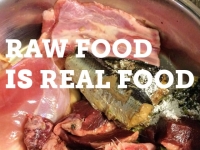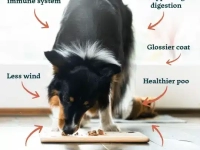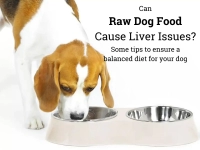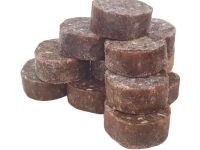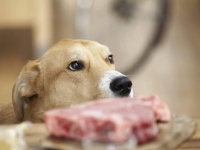Raw Dog Food for a Cavalier King Charles Spaniel
In This Article...
THE OVERVIEW...
What is the Best Diet for a Cavalier King Charles Spaniel?
Why Choose Raw Food for Your Cavalier?
Choosing raw food for your Cavalier King Charles Spaniel can significantly enhance their health. Raw diets are often grain-free and rich in protein, which is essential for maintaining a lean body and a shiny coat. Many Cavalier owners report improved energy levels and overall vitality after transitioning their dogs to a raw food regimen. Additionally, raw food can help in preventing common health issues associated with processed dog food.
Raw dog food can also provide your Cavalier with the necessary nutrients they need for optimal health. A raw diet typically includes fresh meat, organ meats, and bones, which are packed with vitamins and minerals. This approach mimics the natural diet of wild canines, ensuring that your Cavalier receives the best possible nutrition. By choosing raw food, you can help your dog thrive and maintain a healthy lifestyle.
What Nutrients Does a Cavalier Need?
Cavalier King Charles Spaniels need a balanced diet that includes proteins, fats, vitamins, and minerals. Proteins are crucial for muscle maintenance, while healthy fats support skin and coat health. It’s also essential to include organ meats in their diet, as these are rich in vital nutrients that support heart and overall health. A well-rounded diet ensures that your Cavalier remains energetic and healthy throughout their life.
Furthermore, certain vitamins and minerals play a pivotal role in maintaining the health of this breed. For instance, omega fatty acids promote a silky coat and help reduce inflammation, which is beneficial for conditions such as mitral valve disease. Regularly incorporating a variety of meats and organ sources can help meet the specific dietary needs of your Cavalier, ensuring they receive all the necessary nutrients for a long and healthy life.
At Kuri we recommend starting with a product that includes green tripe, this helps the dogs body transition more effectively to a raw diet. Green tripe is a natural digestive aid, supporting gut biology and improving food break down. It is also a highly palatable ingredient, meaning that your Cavalier will love it!
How to Transition Your Cavalier King Charles Spaniel to Raw Food?
Transitioning your Cavalier King Charles Spaniel to a raw food diet should be done gradually to avoid digestive upset. Start by mixing a small amount of raw food with their current diet, gradually increasing the proportion of raw food over a week or two. Monitor your dog’s reaction and adjust the transition process as needed. This method helps your Cavalier adapt to the new diet smoothly.
During the transition, it’s essential to monitor your dog’s poo and overall behaviour. A successful transition will typically result in firmer stools and increased energy levels. If your Cavalier experiences any adverse reactions, such as diarrhea or vomiting, consult your holistic veterinarian. They can provide guidance on how to adjust the transition process, ensuring that your Cavalier King Charles Spaniel thrives on their new raw food diet.
Common Health Problems in Cavalier King Charles Spaniels
What are the Common Health Issues in This Breed?
Cavalier King Charles Spaniels are prone to several common health issues, including heart disease and syringomyelia. Mitral valve disease is particularly prevalent in this breed, which can lead to serious complications if not managed properly. Additionally, many Cavaliers may experience ear problems due to their long, floppy ears, making them susceptible to infections. Regular veterinary check-ups are essential for early detection of these health concerns.
Another common issue in this breed is hip dysplasia, which can affect their mobility and overall quality of life. Being aware of these potential health problems allows Cavalier owners to take proactive measures in their dog’s care. By providing a balanced raw diet, combined with regular exercise, together managing body weight, and routine vet visits, you can help mitigate the risks associated with these health issues and ensure your Cavalier remains healthy and happy.
How Does Diet Affect Health Conditions Like Heart Disease?
Diet plays a crucial role in managing health conditions such as heart disease in Cavalier King Charles Spaniels. A diet rich in omega-3 fatty acids can help support heart health by reducing inflammation and promoting better circulation. Raw food diets, which are often high in protein and low in simple carbohydrates, can also help maintain a healthy weight, reducing the strain on the heart. It’s essential to choose high-quality ingredients to provide the best nutrition for your Cavalier.
Moreover, certain amino acids, such as taurine, may be beneficial for heart health. Including a variety of meats and organ meats in your Cavalier’s diet can ensure they receive all the necessary nutrients. By being mindful of their dietary choices, you can help manage your Cavalier’s health conditions and improve their quality of life, allowing them to thrive and enjoy their time with you. Using a range of the Kuri Raw Dog Food products will ensure your Cavalier has an excellent mix of organ meat in their diet.
What Symptoms Should You Watch For?
As a Cavalier owner, it’s essential to be vigilant about any changes in your dog’s behaviour or health. Symptoms such as coughing, lethargy, or difficulty breathing may indicate underlying health issues, particularly heart disease. Additionally, watch for signs of discomfort, such as scratching at the ears or sensitivity in certain areas, which could suggest infections or other health concerns. Regular monitoring can help catch potential problems early.
Other symptoms to be aware of include changes in appetite, excessive thirst, or unusual weight loss. These signs could indicate dietary deficiencies or other health issues that require immediate attention. By being proactive and attentive to your Cavalier’s health, you can ensure they receive the necessary care and support, allowing them to live a long, happy, and healthy life.
Feeding Guidelines for Your Cavalier King Charles Spaniel
How Much Raw Food Should You Feed Your Cavalier?
Determining the appropriate amount of raw food for your Cavalier King Charles Spaniel depends on several factors, including their size, age, and activity level. Generally, a good guideline is to feed them approximately 2-3% of their body weight in raw food daily. For example, if your Cavalier weighs 6 kilograms, you should aim for about 120 grams to 180 grams of raw food each day. Adjustments may be necessary based on your dog’s specific needs.
It’s important to monitor your Cavalier’s body condition and energy levels regularly. If they appear overweight or underweight, consider adjusting their portion sizes accordingly. Consulting with a veterinarian can provide valuable insights into your dog’s dietary needs and help you establish a feeding routine that supports their overall health and well-being. This personalised approach ensures that your Cavalier receives the right amount of nutrition for their unique lifestyle.
What Types of Meat are Best for a Cavalier?
When selecting meats for your Cavalier King Charles Spaniel’s raw diet, it’s essential to choose high-quality sources. Chicken, game, beef, and lamb are excellent options that provide the necessary protein and nutrients. Additionally, organ meats such as liver, kidney, heart and tripe are packed with vitamins and minerals that support overall health. It’s beneficial to rotate different protein sources to provide a well-rounded diet.
Incorporating a variety of meats not only ensures your Cavalier receives a balanced diet but also helps prevent food sensitivities. Some dogs may have allergies or intolerances to specific proteins, so being mindful of their reactions is crucial. By offering diverse protein sources, you can keep mealtime exciting for your Cavalier while supporting their health and well-being.
How to Measure Portions for Your Cavalier King Charles Spaniel?
Measuring portions for your Cavalier King Charles Spaniel is essential for maintaining a healthy weight and ensuring they receive the right amount of nutrition. The raw dog food at Kuri are pre-cut into 90-gram medallions, making it easy and convenient to measure out the correct amount.
It’s also important to observe your dog’s body condition and adjust portions accordingly. If your Cavalier is losing weight or appears overly energetic at feeding time, you may need to increase their food intake. Conversely, if they are gaining weight, reducing portions may be necessary. Regular monitoring and adjustments will help ensure your Cavalier maintains a healthy weight and enjoys a balanced diet.
If you are including bones in your dog’s diet, it is important to take these into consideration so as to not overfeed. Sometimes a larger meaty bone can be sufficient for a meal, or you might feed a little extra in a later meal to compensate as needed.
Understanding the Size and Activity Needs of Cavalier King Charles Spaniels
What is the Average Size of a Cavalier King Charles Spaniel?
The average size of a Cavalier King Charles Spaniel typically ranges from 5 to 8 kilograms, making them a small yet sturdy breed. Their height usually falls between 30 to 33 centimetres at the shoulder. Despite their compact size, Cavaliers possess a robust build and are known for their affectionate and friendly demeanour. Understanding their size is crucial for determining their dietary and exercise needs.
Being a toy breed, Cavaliers are often mistaken for delicate pets, but they are surprisingly resilient. Their size allows them to adapt well to various living environments, including apartments and houses. However, it’s essential to ensure they receive adequate exercise and mental stimulation, as their small stature does not diminish their need for daily activity and engagement.
How Much Exercise Does a Cavalier Need Daily?
Cavalier King Charles Spaniels require a moderate amount of exercise to maintain their health and well-being. Generally, they benefit from at least 30 minutes to an hour of daily activity, which can include walks, playtime, or engaging in dog sports. Regular exercise helps prevent obesity and promotes cardiovascular health, which is particularly important for this breed, given their predisposition to heart disease.
In addition to physical exercise, mental stimulation is equally important for Cavaliers. Activities such as puzzle toys, feeding bones, training sessions, or interactive games can help keep their minds sharp and prevent boredom. By providing a balanced combination of physical and mental exercise, you can ensure your Cavalier remains happy, healthy, and well-adjusted.
Conclusion
Cavaliers make great pets, they are bundles of energy in a pocket size and with the proper diet, training and exercise the bond they form with their owner will be rewarding for both of you. At Kuri we are owners of small dogs and know how to help you do what is right to forge a strong bond with your pup. Stop in and see us next time you’re thinking about raw food of doggy daycare.
FREQUENTLY ASKED QUESTIONS
The best raw dog food for a Cavalier King Charles Spaniel should include high-quality protein sources such as chicken, beef, or lamb, along with vegetables and supplements. It is essential to consult with a veterinarian or a canine nutritionist to ensure the diet meets the specific needs of this dog breed.
Regular grooming is crucial for a Cavalier King Charles Spaniel due to their long, silky coat. It is recommended to groom them at least once a week, but daily brushing may be necessary to prevent mats and tangles, especially in areas like the feathering on their legs and ears.
Common health issues in the Cavalier King Charles Spaniel dog breed include heart problems, eye issues, and hip dysplasia. Regular veterinary check-ups and preventative care are essential to monitor and address any potential health concerns.
Cavalier King Charles Spaniels are known to experience separation anxiety if left alone for extended periods. It is advisable to provide them with enrichment activities and toys to keep them occupied, or consider doggy daycare if you are away for long hours.
Socializing your Cavalier puppy is vital for their development. Introduce them to various environments, people, and other dogs in a controlled manner. Puppy playgroups can provide a great opportunity for socialization while ensuring a cavalier-friendly atmosphere.
A gentle, hypoallergenic shampoo is recommended for a Cavalier King Charles Spaniel to maintain the health of their coat and skin. Look for products specifically designed for dogs, and avoid human shampoos, which can be too harsh.
To prevent matting in your Cavalier’s coat, regular grooming is essential. Use a slicker brush to remove tangles and mats, and consider trimming areas prone to matting, such as behind the ears and under the legs. Regular baths can also help keep the coat clean and manageable.
The ideal exercise routine for a Cavalier King Charles Spaniel includes daily walks, playtime, and mental stimulation. These dogs are energetic and enjoy activities like fetch or agility training, which can also help with their overall health and well-being.
When choosing a breeder for a Cavalier King Charles Spaniel, ensure they are reputable and adhere to ethical breeding practices. Look for breeders who provide health clearances for the puppy’s parents, are involved with the Cavalier King Charles Spaniel Club, and prioritize the health and temperament of their dogs.


